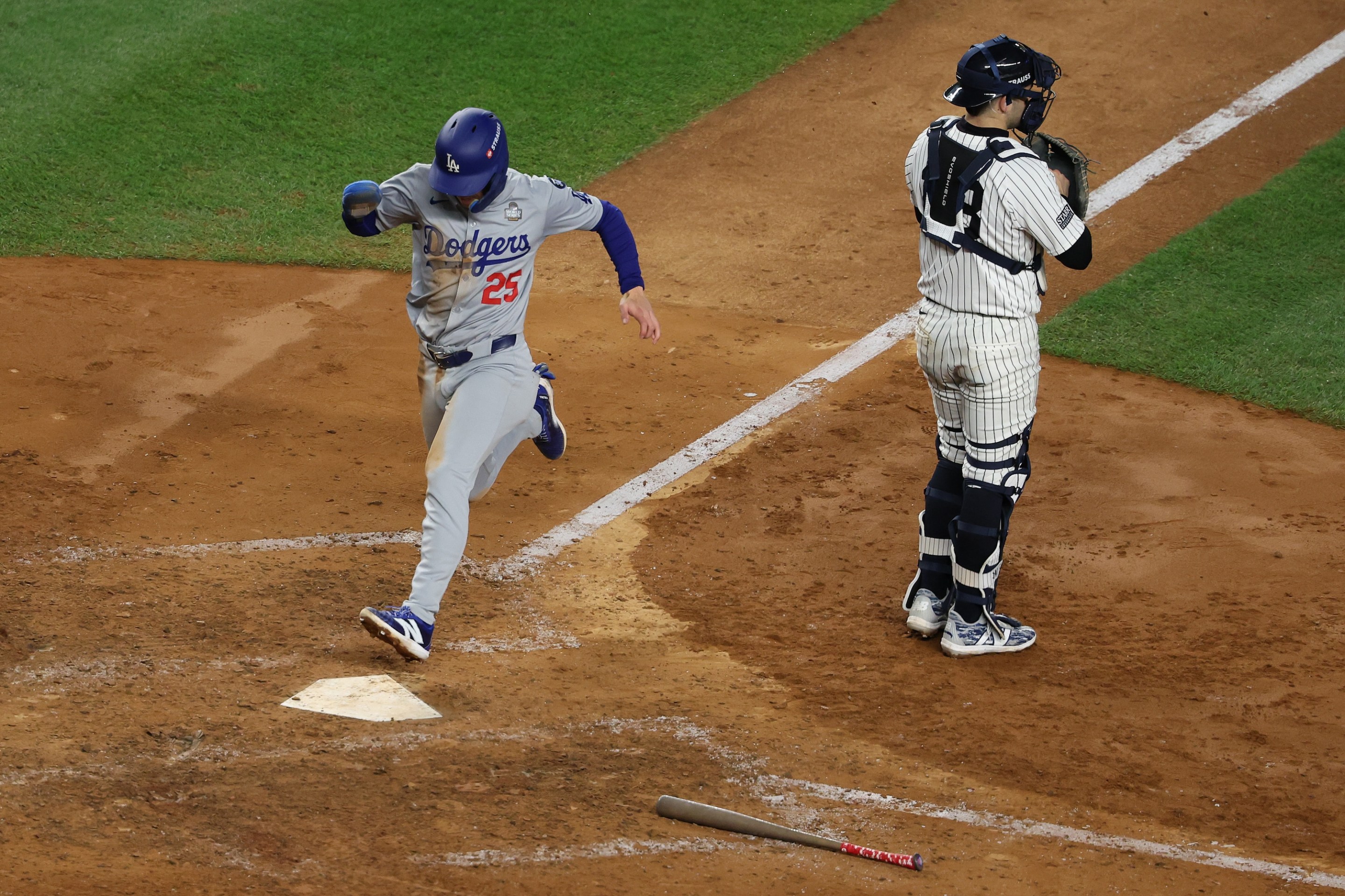It's nice to have a whole roll call's worth of names for a home run. We talk about them a lot, and the slang terms come in handy if you're someone like me who hates using the same word over and over. Particularly in this World Series, which the Dodgers wrapped triumphantly on Wednesday night, all of those synonyms were put to good use in each game.
To wit: In Game 1, Freddie Freeman's walk-off big fly made him an instant legend. In Game 2, L.A. won on the strength of a tater from Tommy Edman, a bomb from Teoscar Hernández, and a round-tripper from Freeman. In Game 3, the difference-maker once more was a Freeman dong. In Game 4, the Yankees got a morale boost from an Anthony Volpe grand salami. And in Game 5, New York was off and running early thanks to a jack from Aaron Judge, a blast from Jazz Chisholm, and a Giancarlo Stanton pancake to right. Pancake's not even a real word for a homer, but it works, right? Anything violent and/or tasty will do.
However, the Stanton wallop that made the game 5-0, Yanks, was the final four-bagger of the series, and you will observe that the Yankees did not win the game 5-0, or at all. The runs that led to a 7-6 Dodgers final would come in smaller but no less important ways. A parade of New York errors in the fifth tied the game at five-all, and from there, it was less about the sockdolager than the sacdolager: The Dodgers won the sacrifice fly battle 2-1 and earned the right to celebrate.
Los Angeles manufactured two sac flies in Game 1, eventually setting up Freeman's gargantuan game-winner, but then that run-scoring mechanism disappeared entirely from this series until Stanton flied out to give the Yankees a slim and fleeting lead. It's fine if you hadn't noticed its temporary absence. Barring a close play at the plate, a sacrifice fly is the quietest way to score. It's an out, and then a runner runs 90 feet. It's not going to lead SportsCenter. But it's not a failure: Since 1954, baseball has declined to punish this hitter's assist when tallying batting average. (If Ted Williams's sac flies hadn't counted as outs, he would have hit .413 in 1941!)
Loading the bases to start the eighth, all the Dodgers had to do was trade outs for runs. Gavin Lux, facing Luke Weaver, worked the count full and then met a fastball in the zone to lift a fly to deep left center, allowing Kiké Hernández to score and Edman to hustle to third. Shohei Ohtani got on base by catcher interference, putting Mookie Betts in the batter's box with the bases loaded again. The first thing Betts saw was a fastball up, and he knew exactly what he had to do with it. The swing was celebrated with what I'd call restrained satisfaction on the Dodgers bench, to be followed by something much rowdier just a few outs later. These two medium-longballs put L.A. over the top.
It is the fate of the sacrifice fly to receive only short-lived, polite appreciation. It's the baseball equivalent of someone holding a door open for you: nice enough, even if it won't ever be the highlight of your day. This time, however, that door just happened to lead to a title.






